
Camping is one of the cheapest ways to take a break from the hustle and bustle of daily existence. With the cost of living so high and technology ever-present in our lives, it’s no wonder more and more people are choosing to unplug and spend a few days enjoying the simple pleasures of Australia’s abundant campgrounds and national parks.
If you’ve never camped before but you’d like to give it a try, there are certain camping essentials you’ll want to pack along with your tent and sleeping bags. What items you need to take and how much gear to bring will depend on the duration and remoteness of your planned camping adventure.
Read on for our list of Aussie camping essentials.
No matter whether you’re pitching a tent in a national park campground or heading out into the willy-wags, possible misadventure lurks around every corner. A twisted ankle, bumps and scrapes, minor burns, mild fever, even snake or spider bite – if any of these occur, you’ll want a first aid kit on hand.
A good quality first aid kit should contain bandages, surgical tape, scissors, gauze, antiseptic swabs, band-aids and padded dressings, antiseptic cream, a disposable cold pack, and pain relief medication such as paracetamol or ibuprofen.
You can make one up yourself (most of these items are readily available at your local chemist) or there are prepackaged first aid kits for sale from St John’s Ambulance and similar organisations.
While you can usually make do with stone age tools for a night’s camping – driving your tent pegs into the ground with a rock, for instance – packing a few basic tools from the 21st century will ensure you’re equipped to deal with any situation that comes up and make your camping trip less stressful.
A Leatherman multi-tool is pricey but comprises a knife, saw, pliers, scissors, Phillips head screwdriver, bottle opener and much more into one device that fits in the palm of your hand. Otherwise, a small bag containing a shifter, a mallet and a couple of screwdrivers will cover most of the odd jobs that crop up while camping.
In metro areas we sometimes refer to artificial light as pollution, but when sunset falls in the bush you’ll suddenly realise this “pollution” comes in very handy if you want to do anything – walk safely from point A to point B, find something in your backpack, even just read a label.
While a hand torch will suffice, the advantage of a head torch is that it leaves both hands free to do the manual jobs that come with setting up and maintaining your campsite (anything from adjusting tent pegs to collecting firewood).
A battery-powered lantern is also a worthwhile investment, providing loads of light for reading, board games, and whatever else you intend to get up to in your tent.
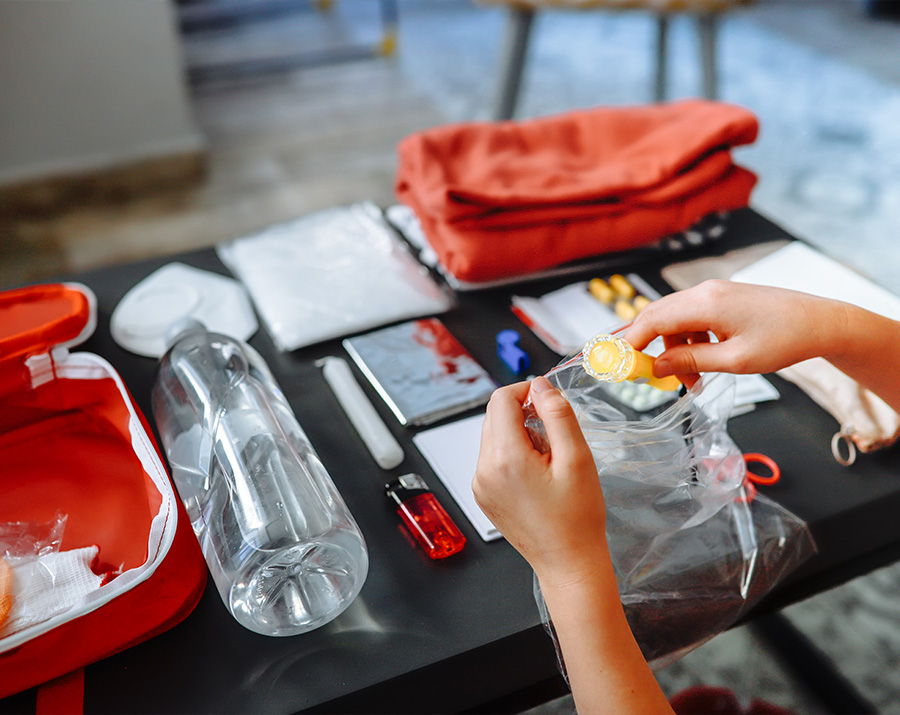
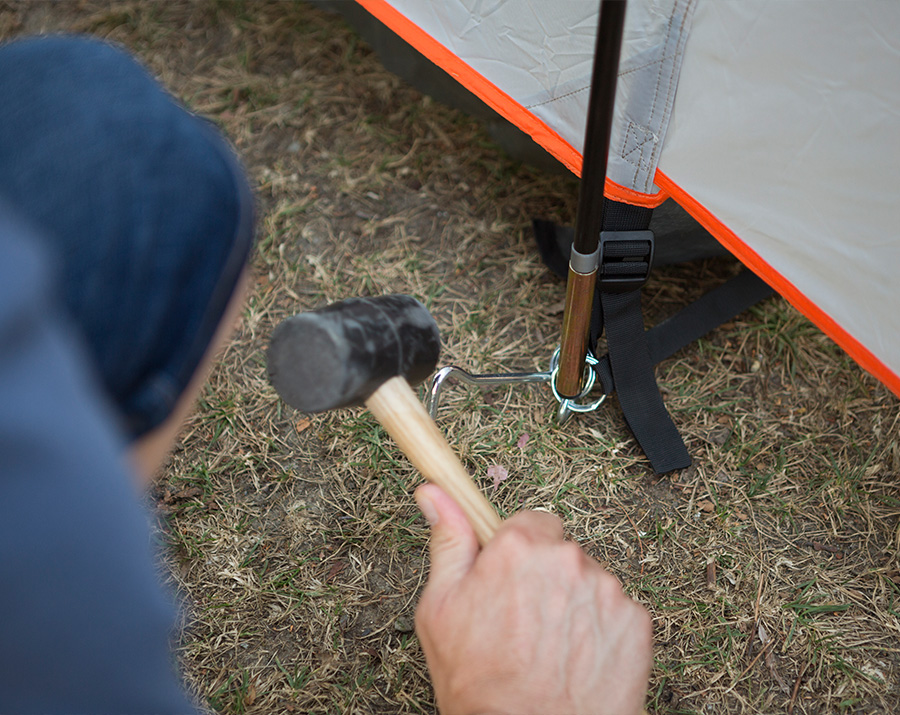
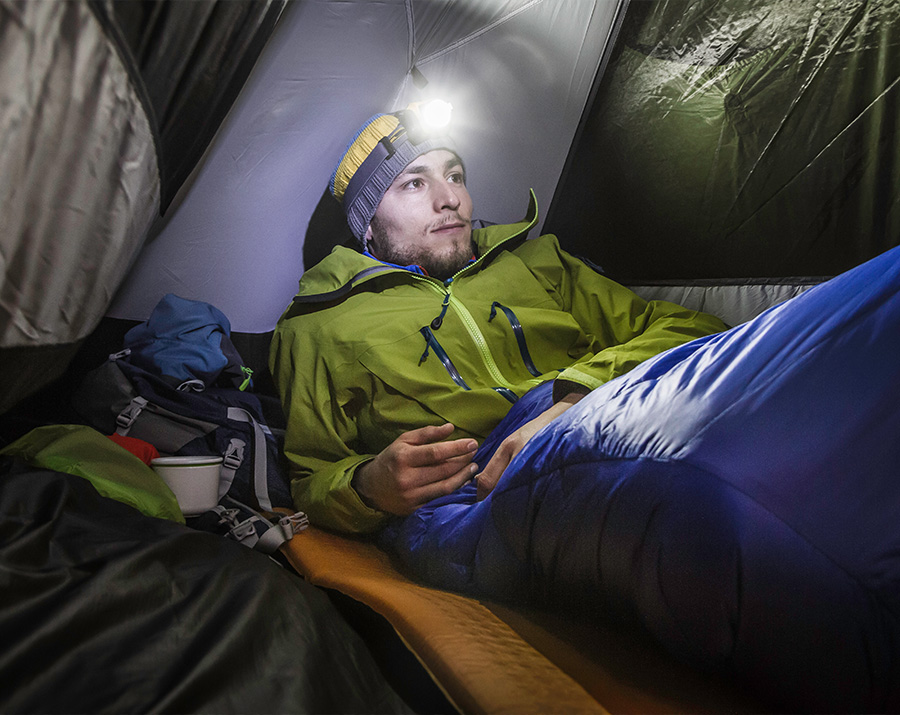
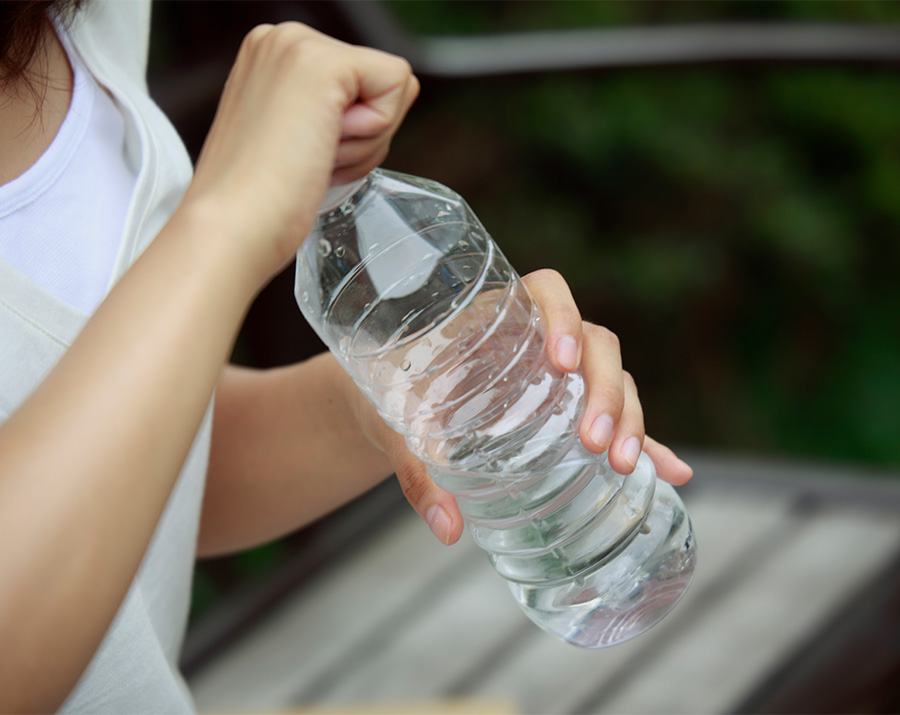
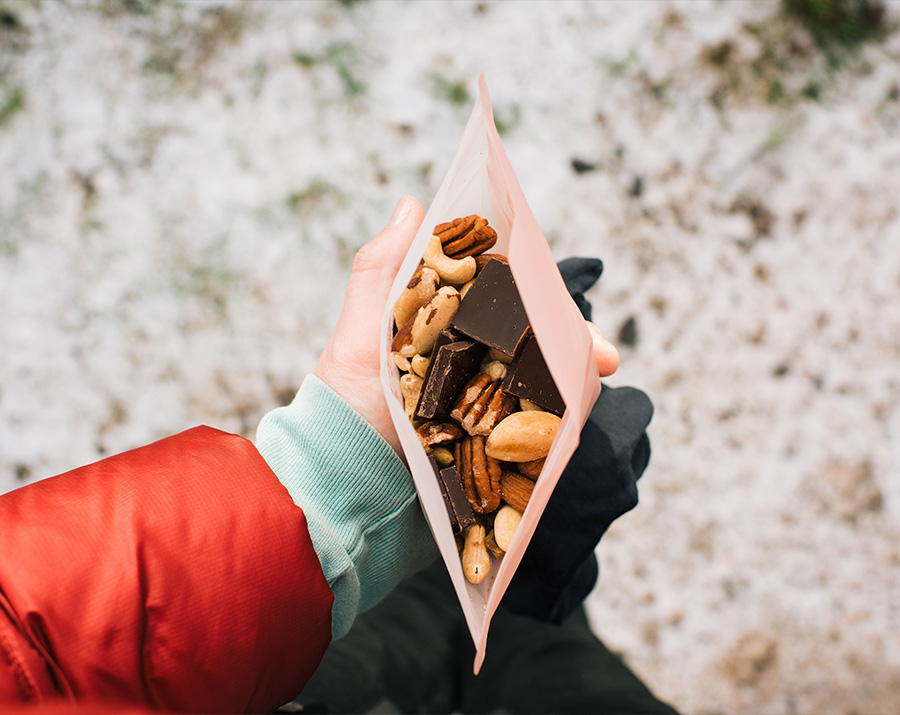
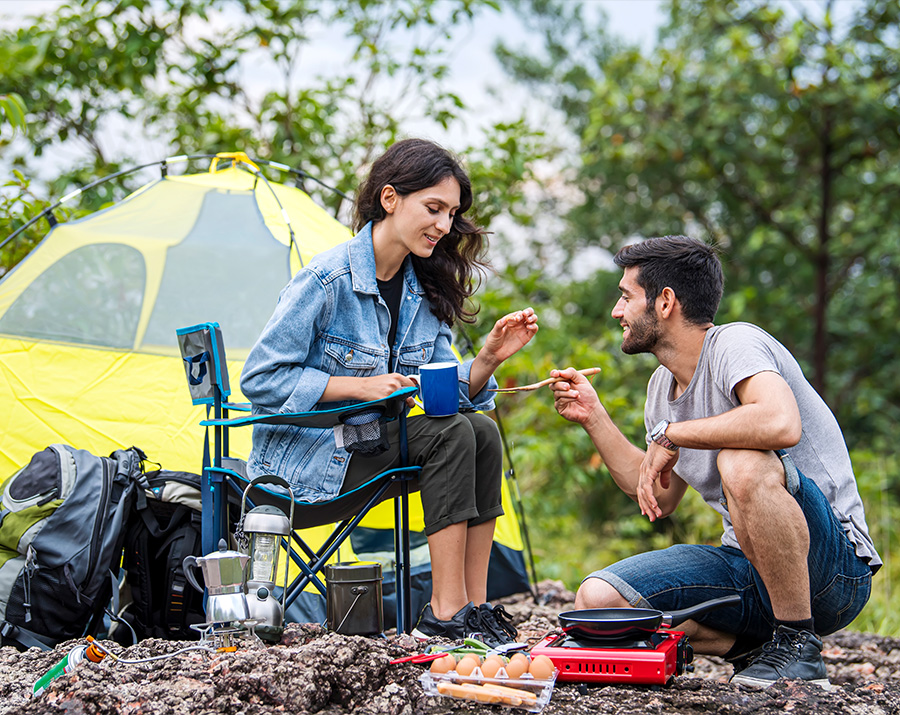
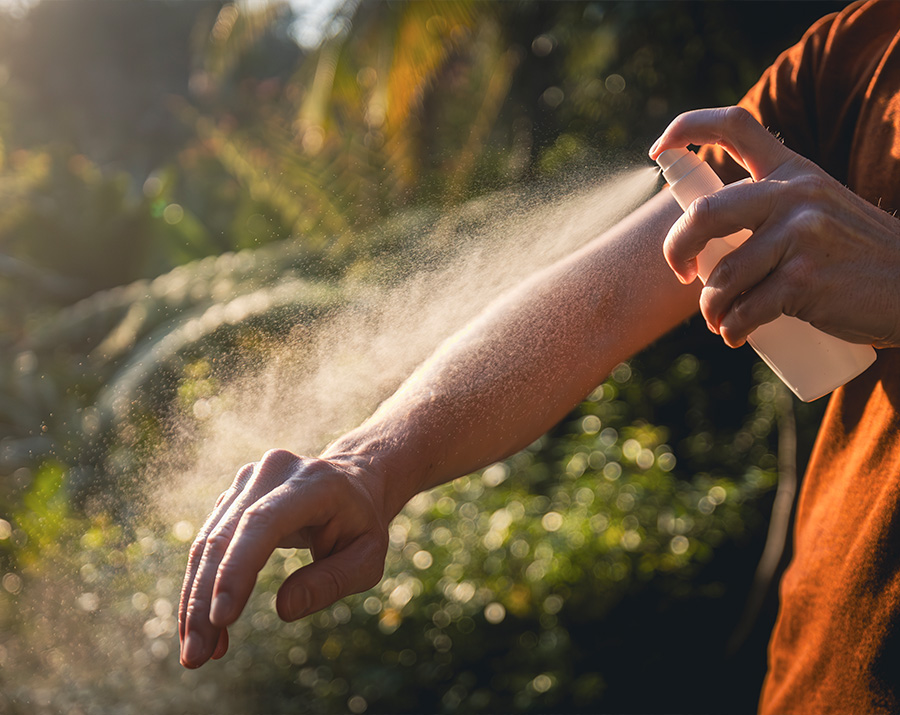
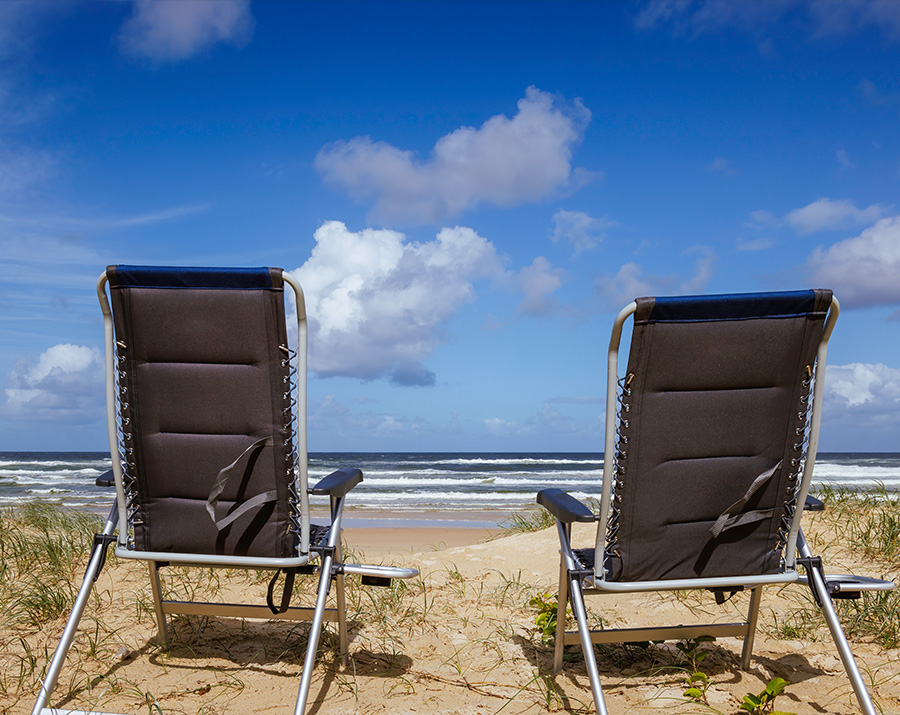
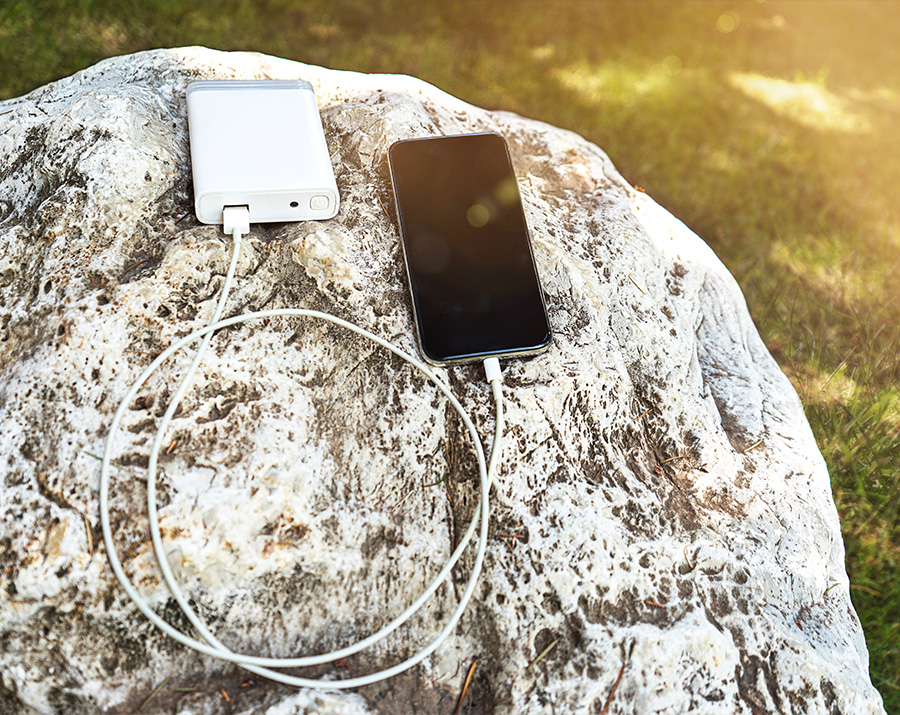
Water sources will depend very much on your location. If you’re in a holiday park, drinking water is only as far away as the camp kitchen. In a national park, there will likely be potable water available somewhere (but make sure you read the signage!). If you’re camping in a more remote area a long way from your vehicle, your options are to bring water with you (convenient but cumbersome if you’re staying more than a day or two) or to obtain it from a natural source such as a creek, river or dam.
The latter is what NSW Health calls ‘surface water' and it should not be used for drinking, cooking or brushing teeth without first understanding potential risks – in any given area, surface water could be contaminated with sewage, animal faeces, industrial waste or radioactive materials. Even if water is largely free from contaminants, it should be filtered and boiled/disinfected to kill micro-organisms. Ignoring this advice may result in serious illness or death.
The types and amount of food you’ll want to pack will depend on the sort of camping trip you have planned.
A good option for the first day is to bring along a pre-prepared frozen meal, such as spaghetti Bolognese or curry, which you can heat up over a fire (or, if you’re staying at an NRMA holiday park, in the camp kitchen microwave).
If you’re camping off grid or living the tent life during a multi-day hike, aim to pack lightweight high-energy food such as muesli bars, dried fruit and nuts, crispbread and crackers, and pre-packaged dehydrated meals that only require boiling water, such as noodles and pasta. Don’t forget to take your rubbish with you!
If you’re hiking into the never-never and keeping your rations simple, a fork and spoon will probably suffice for cutlery. But if you’re staying in a holiday park or designated campground and have access to more civilised foodstuffs, you’ll want a plate and cutlery set.
An ideal option is a backpack picnic set. Not only is this compact and convenient, you can take it with you on a bushwalk and stop for a picnic lunch at any scenic spot you happen across. There are some pretty flash options these days and most contain four to six of everything – knives, forks, spoons, plates, glasses – and a bottle opener and salt and pepper shakers, to boot.
A diet of beef jerky and pot noodles might be simple but it isn’t everyone’s idea of bliss. If you have proper food – a tin of stew you brought along or that bream you caught in the river, say – you’ll want some way to cook it.
Cookware is heavy and cumbersome, so aim to bring one pot and one pan and, if you can, opt for a lightweight material such as aluminium. Also look for cookware with a non-stick coating – you’ll thank yourself when it comes time to wash up.
Speaking of which, don’t forget to bring along a compact bottle of eco-friendly dishwashing detergent and pot scrubber. Camping retailers often stock specialist dishwashing kits that include a collapsible plastic sink, cloths, a pot scrubber, detergent and the like.
Last of all, give some thought to your heat source. Cooking over an open fire or hot coals doesn’t appeal to everyone and if you’re in an area where campfires are banned, you’ll need a butane stove or access to a public barbeque. If a campfire is on the cards, don’t forget the essentials – matches or a lighter and newspaper/firelighter cubes.
These are merely handy if you’re camping within arm’s reach of civilisation, but they’re indispensable when you’re making camp off the beaten track. Littering is a selfish and reprehensible act, doubly so in an unspoiled wilderness area. Whatever you pack in should be packed out when you leave and disposed of properly.
To quote Ganggajang’s most famous lyric, “this is Australia” – if you’re in cooee of a creek there’ll be mosquitoes, and if you aren’t there’ll be flies (and probably mosquitoes as well).
Bring insect repellent, keep your sanity.
Unless you plan to rough it like a 19th century swagman, you’ll want some collapsible camp chairs – sitting on a rug or a log gets old very quickly, especially if you happen to be getting older yourself. When you’re browsing your local Bunnings or BCF, don’t let a budget price-tag tempt you. With camp chairs, you get what you pay for.
A camp table is more luxury than necessity, especially if you’re travelling light, but a flat surface up off the ground comes in handy more often than you’d think. Some camp tables fold down to the size of a briefcase and have a carry handle.
If you’re planning to camp for more than a day or two or you’re likely to go for a swim at nearby river or beach, you’ll want some rope. String it between two trees and you have yourself a clothesline on which you can hang towels and clothing to dry.
If you’re bedded down at a holiday park you can just schlep over to the amenities block when nature calls, but otherwise you’ll need to give some thought to ones and twos.
Most campgrounds that you can drive to have a pit toilet, a few even have flushing loos. If no ablution facilities are provided, you’ll want to consider a camp toilet. There are different varieties on the market, but in essence a camp toilet is a portable seat/cartridge that captures waste, allowing you to carry it out and dispose of it in an appropriate fashion later.
If you’re hiking into a remote area and lugging a camp toilet isn’t an option… well, your options are either to bury it (as deep and as far away from creeks and other waterways as possible) or go in a bag and take it out with you.
While using technology might seem at odds with the point of camping, keeping a phone in your pocket is a good safety measure (you can call someone in the event of an emergency and use the GPS map function if you get lost), plus it can be a handy exploration tool or light source and the camera allows you to capture and preserve those amazing wildlife encounters.
If you do decide to bring a phone, consider packing a power bank as well – it’ll spare you from trudging back to the car and sitting there with the engine running for an hour while your device charges up.
If camping interests you, it’s unlikely you’re the precious type – but allowing yourself a few little luxuries can help make the outdoors experience more comfortable.
If you’re camping between April and October, devising ways to stay warm should be a key consideration. A Therm-a-Rest mattress isn’t cheap, but it’s designed to insulate you from the ground while capturing your body heat to keep you warmer on those frosty nights. If your budget won’t stretch that far, there’s nothing wrong with the humble old hot water bottle.
In the warmer months, a camp stretcher will save you the hassle of pumping up an air mattress and, if you get a good quality one, it may be more comfortable.
Last of all… a doormat. Okay, maybe this does sound just a tad precious, but buying a cheap doormat and putting it outside your tent will prevent you from traipsing dirt and mud and kangaroo poo into your nylon sleeping quarters.